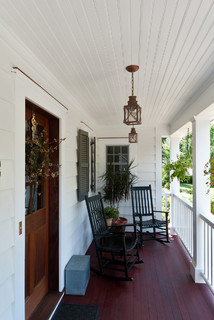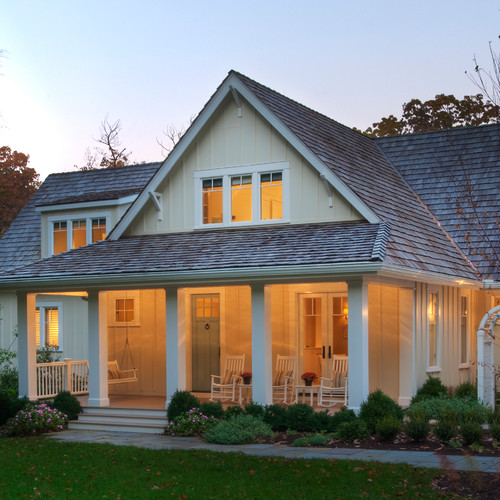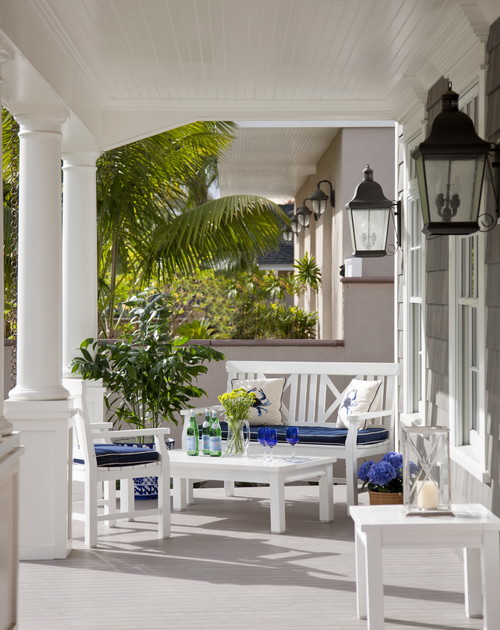The front porch is making a comeback in home designs. Builders recently said the front porch is one of the most popular amenities in 2014, according to the National Association of Home Builders.
The rebirth of the front porch in the past decade may be in partial nod to younger generations who have shown recent preferences toward smaller homes in more dense neighborhoods that boast greater social interaction.
The front porch used to be a mainstay in home designs in the early 1900s, according to a historical paper on “The Rise and Decline of the American Front Porch” published by the Montana Heritage Project. But soon, the front porch became replaced by a garage facing the street. The front porch was moved to backyards as a deck that offered home owners greater privacy.
The popularity of the front porch once was as a gathering place, allowing children to play in the front yard and offering families a cozy place to sit outside, relax, and socialize with their neighbors. But after World War II, front porches began disappearing from newer houses, according to the Montana Heritage Project. The article speculates it was partially due to people becoming “more individualistic and less communal-minded,” and home owners preferring to take their barbecues to the backyard in privacy.
Some home owners are welcoming back the front porch as a way to add more character to your home’s curb appeal. Even if your listing doesn’t have a big front porch, adding some seating may help give buyers that image of this iconic symbol to American homes. Stage it with rocking chairs, a porch swing, or outdoor furniture to show it as an extension of the home, and a place to sit back and connect with your neighbors.
Check out some of these examples:





